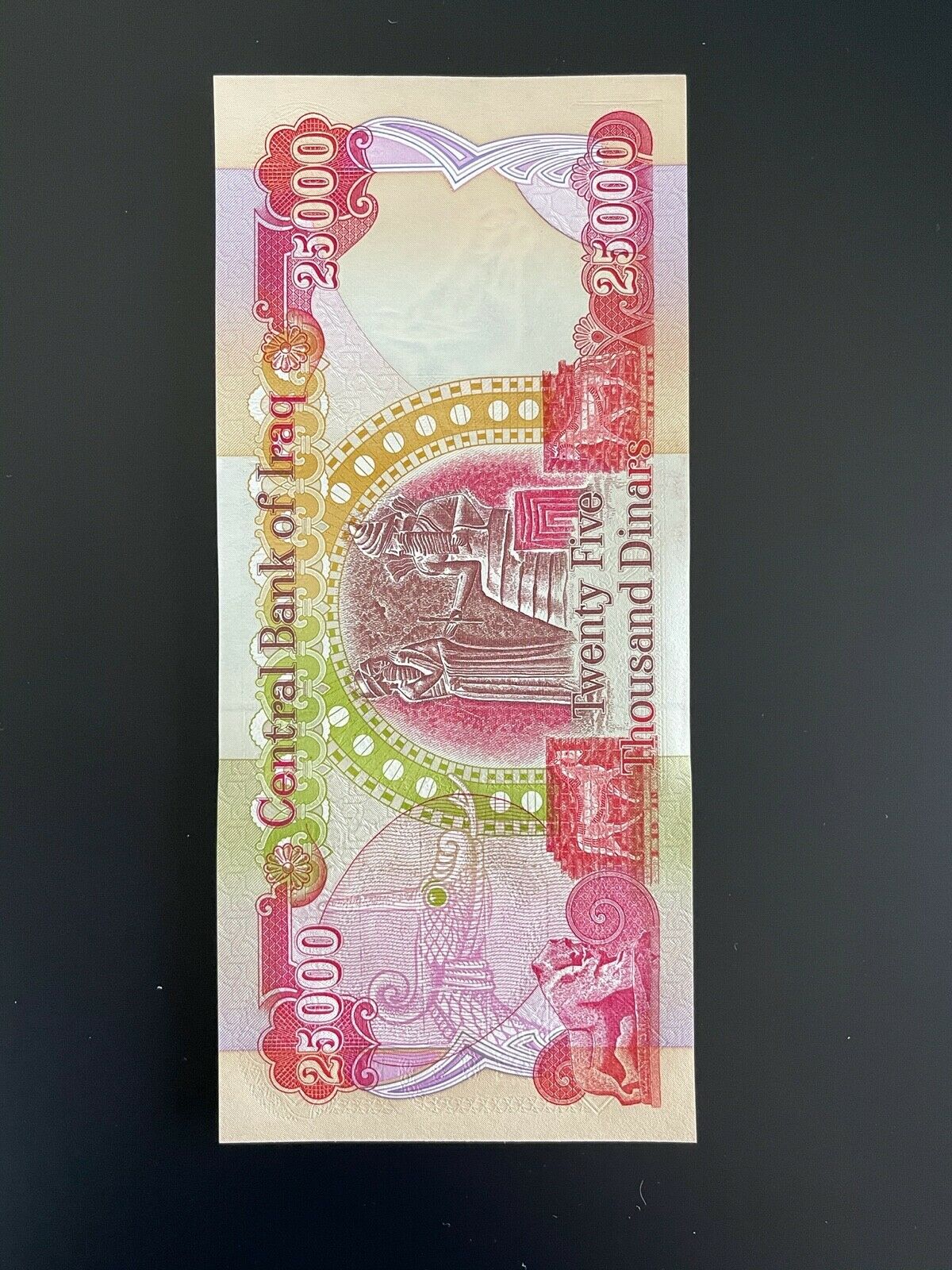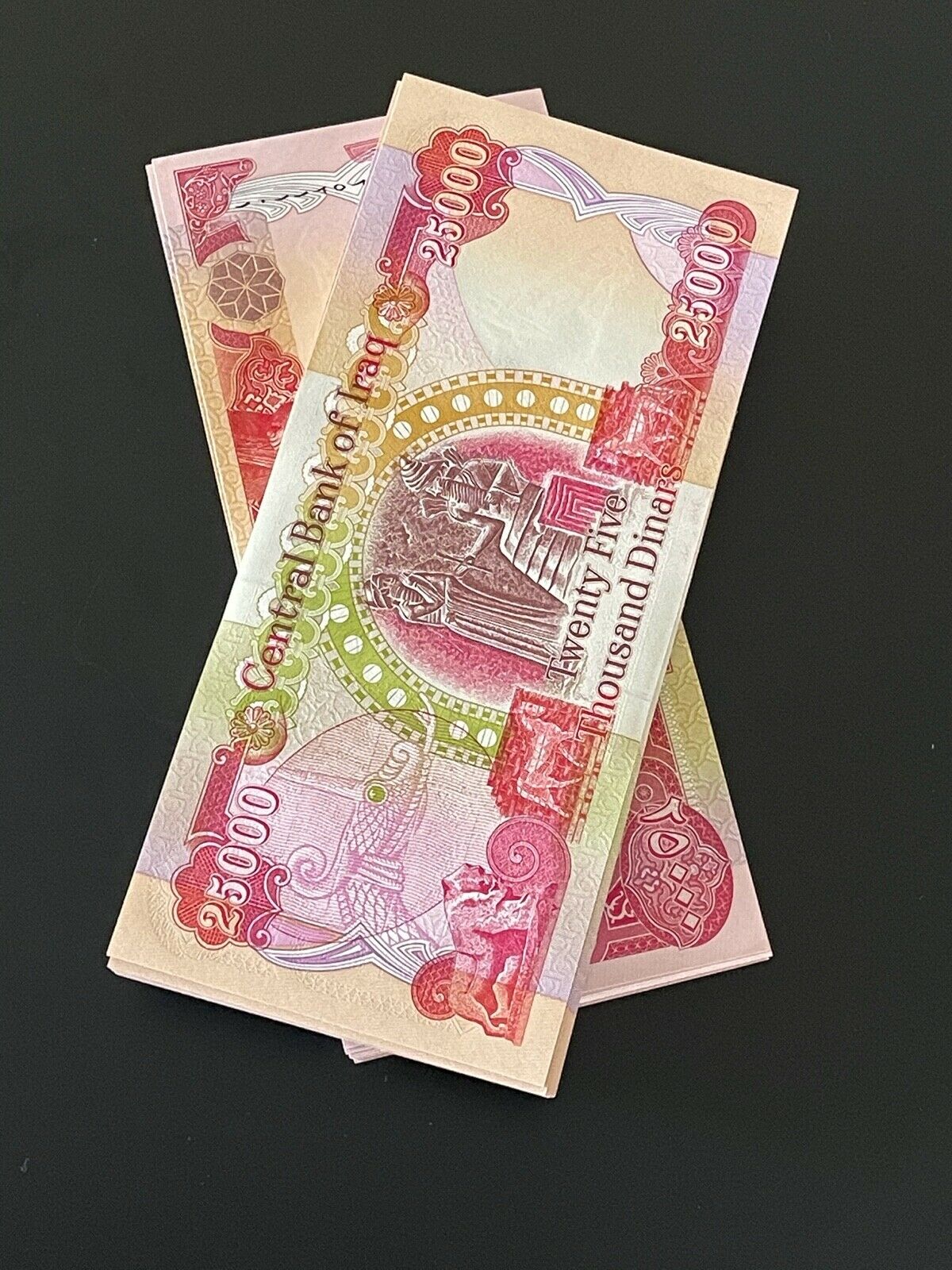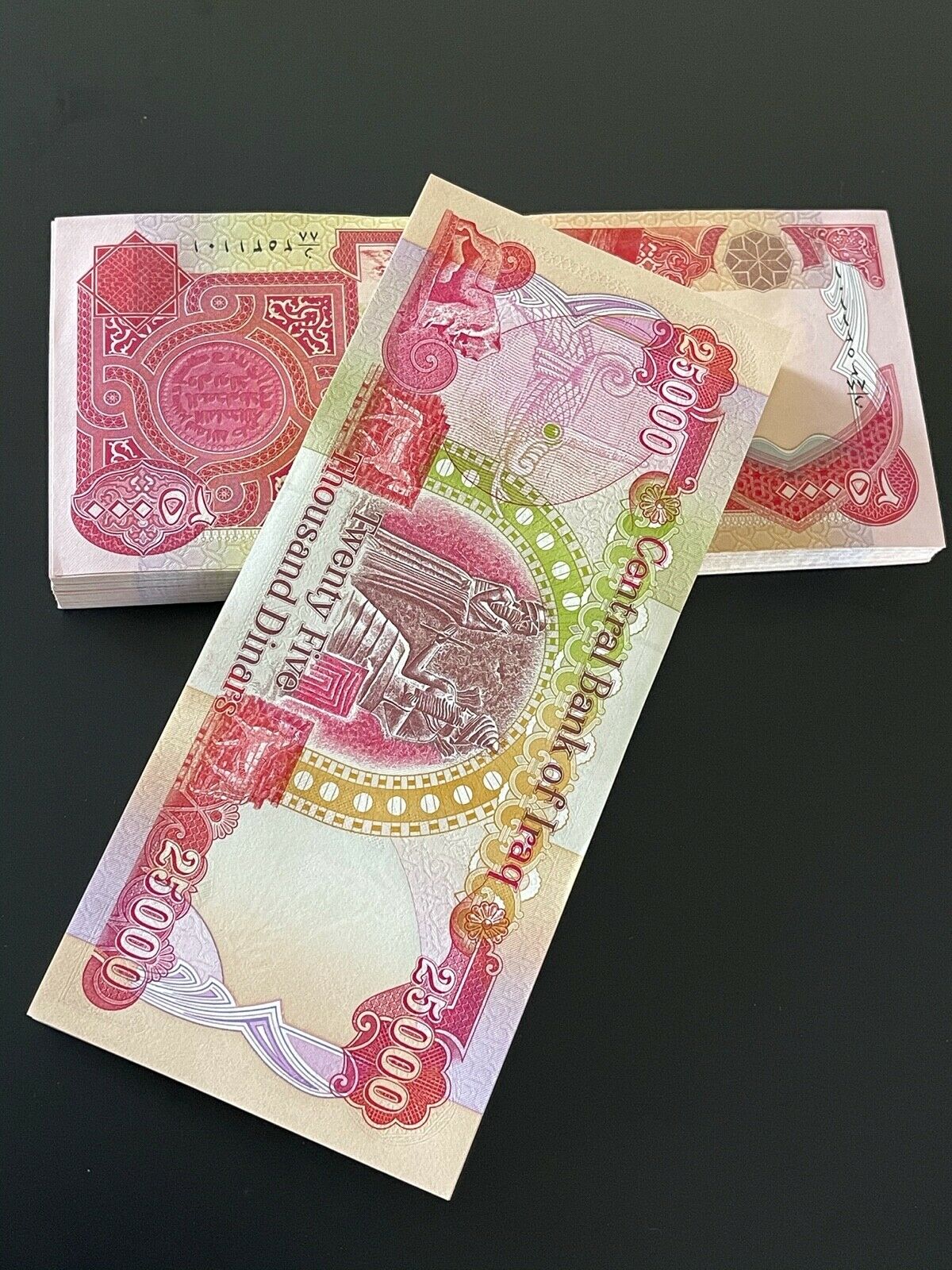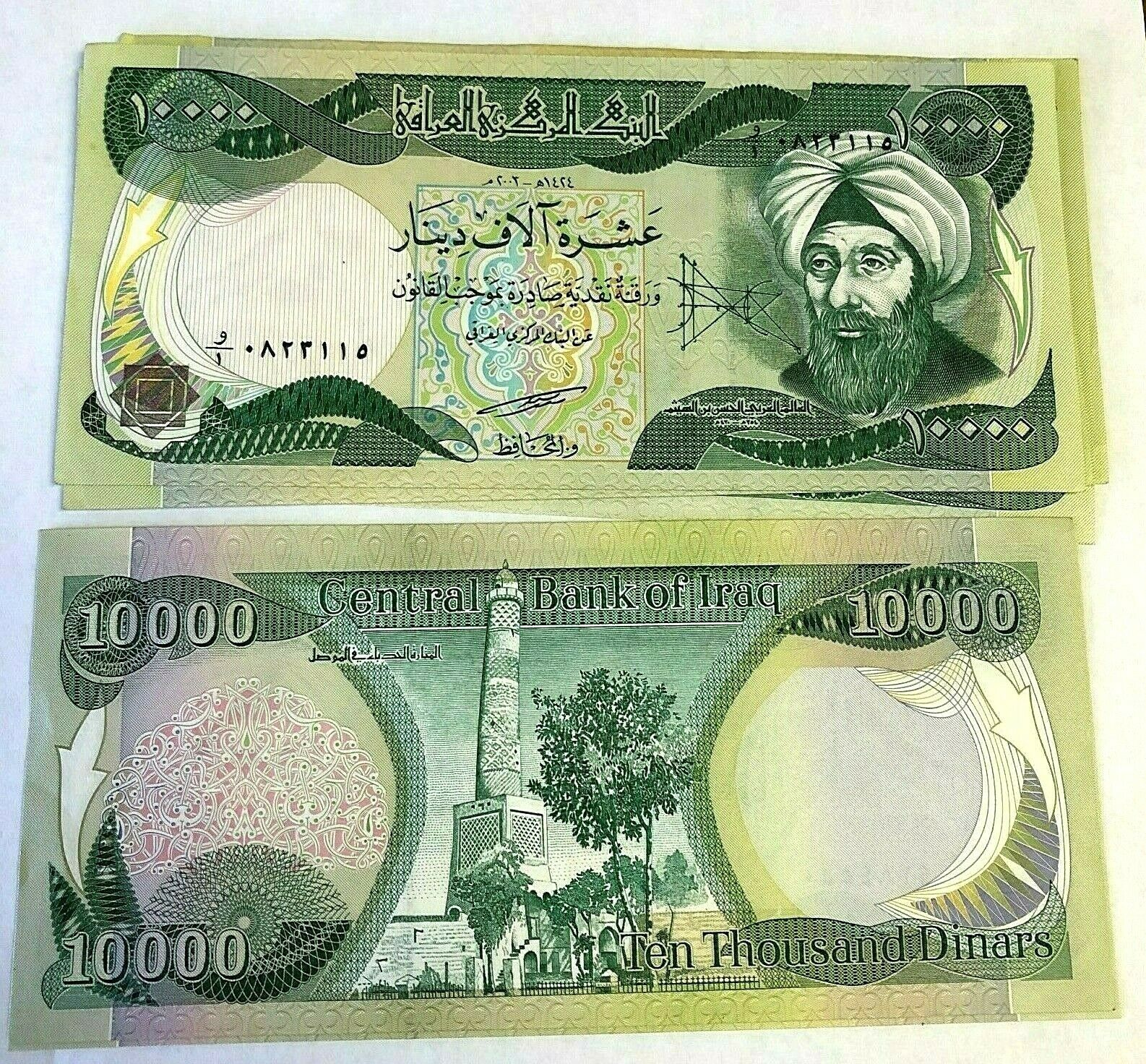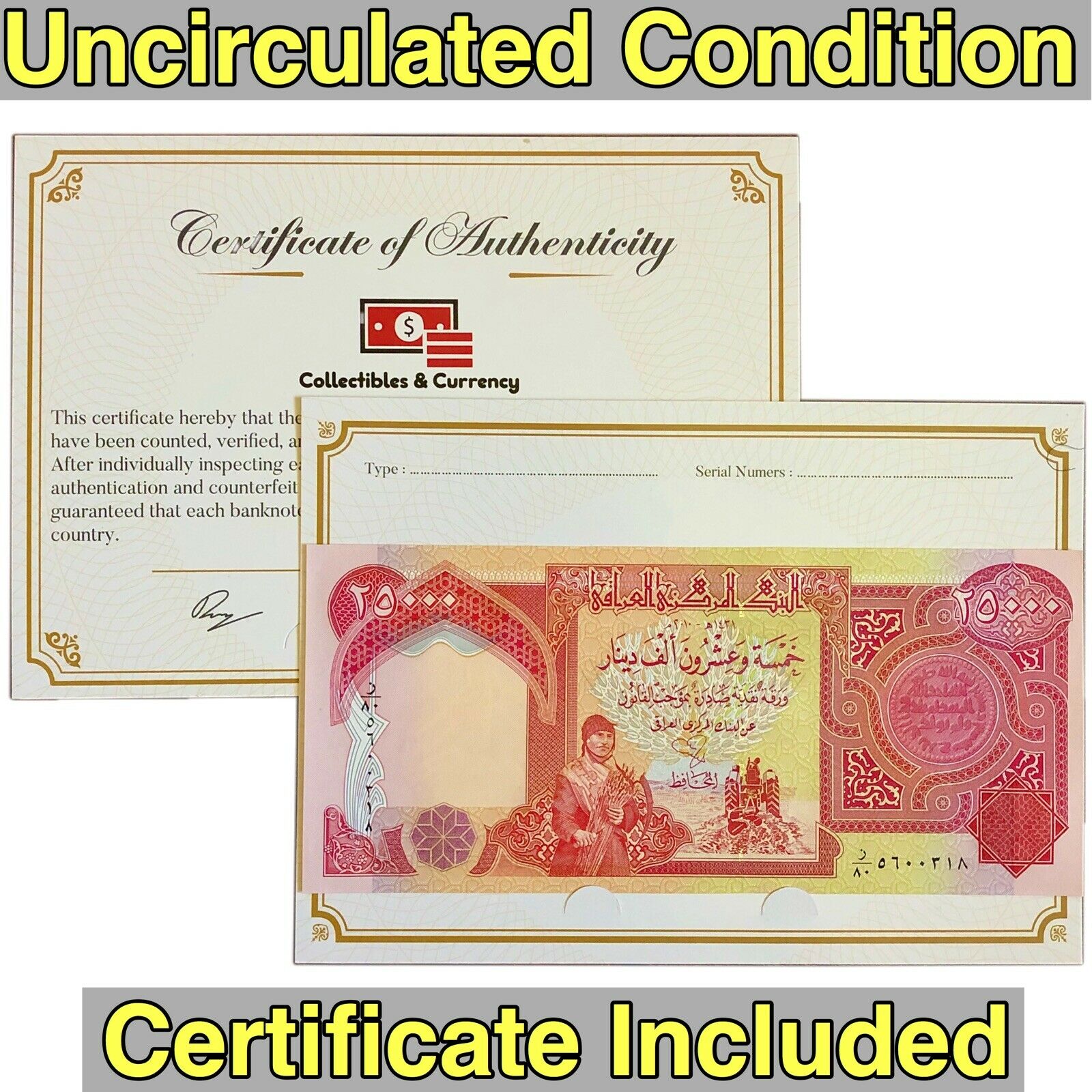-40%
SADDAM HUSSEIN IRAQI CURRENCY - 5 DINARS NOTE - UNCIRCULATED IN HOLDER #1
$ 1.68
- Description
- Size Guide
Description
1992 ~ 5 Dinar NoteCentral Bank of Iraq /
Saddam Hussein
Uncirculated Note
Visit our eBay Store for other great
items
and super deals!!!
This 1992, 5 Dinar Note from the Central Bank of Iraq is in excellent mint state condition. It is pinkish-brown in color and depicts Saddam Hussein on the obverse. This was the only 5 dinar note issued for circulation in the 1990's.
Iraqi Currency printed before the Gulf War was often called the Swiss dinar. It got its name from the Swiss printing technology that produced banknotes of a considerably higher quality than those later produced under the economic sanctions that were imposed after the first Gulf War. After a change-over period, this currency was dis-endorsed by the Iraqi government. However, this old currency still circulated in the Kurdish regions of Iraq until it was replaced with the new dinar after the second Gulf War. During this time the Swiss dinar retained its value, whilst the new currency consistently lost value at sometimes 30 percent per annum.
Banknotes that were issued between 1990 and October 2003, along with a 25-dinar note issued in 1986, bear an idealized engraving of former Iraqi President Saddam Hussein. Following the 1991 Gulf War, Iraq's currency was printed both locally and in China, using poor grade wood pulp paper (rather than cotton or linen) and inferior quality lithography (some notes were reputedly printed on presses designed for printing newspapers).
The primitive printing techniques resulted in a limitless variety in coloration and detail, one layer of the printing would be too faint while another would be too dark. Counterfeit banknotes often times appeared to be of better quality than that of the actual real notes. Some notes were very poorly cut, and some notes were even missing serial numbers. Despite the collapse in the value of the Iraqi dinar, the highest denomination printed until 2002 was 250 dinars. In 2002, the Central Bank of Iraq issued a 10,000-dinars banknote to be used for "larger, and inter-bank transactions". This note was rarely accepted in practice due to fears of looting and counterfeiting. This forced people to carry around stacks of 250-dinars notes for everyday use. The other, smaller bills were so worthless that they largely fell into disuse. This situation meant that Iraq, for the most part, had only one denomination of banknote in wide circulation.


